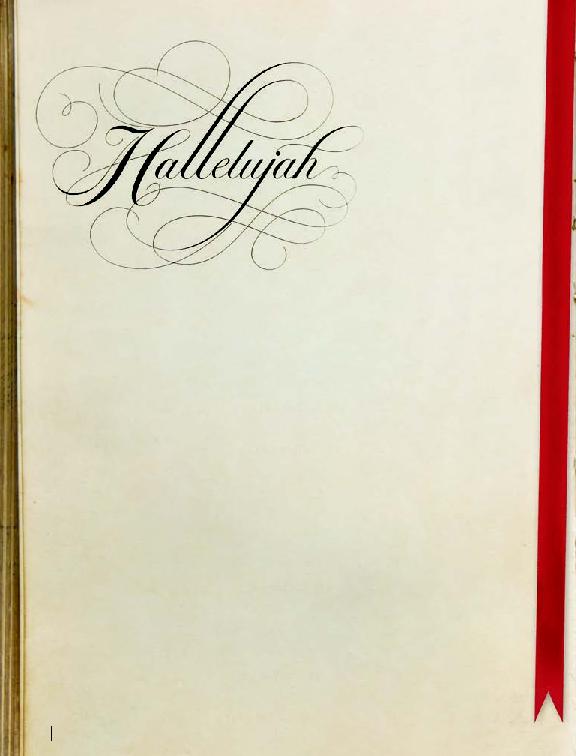
tradition has produced in me a
naturally interactive worship
style that didn't prepare me for
what I was about to experience.
Surrounded by fellow students
from many denominations, my
"Amens" and specifically my "Hal-
lelujahs" distinguished me among
hundreds of my colleagues at As-
bury Seminary. Then role rever-
sal came when I was the unre-
sponsive, reserved worshipper.
Outfitted in liturgical gown, Dr.
Ellsworth Kalas majestically read
the Scripture lesson for the morn-
ing. When he finished, my eyes
were drawn to him as he raised
the Bible in the air, not just to
eye level, but above his head as
far as his arms could reach. With
a joyful thunder in his voice he
declared, "This is the Word of
God for the people of God."
Scripture, and I had a "hallelujah"
ready to burst out of my mouth,
in old�fashioned Army style. But
I was interrupted by the non-Sal-
vationists in the room, everyone
but me that is, as they said back
liturgical style was not as dusty
as I thought. I was taught in
Corps Cadets to simply repeat,
"May the Lord add a blessing to
the reading of His Word." In that
moment in the seminary chapel
service I was disappointed with
our movement. "Come on! We're
the people with brass bands, fire
volleys, waving flags, Joe the
Turk and hallelujahs. We've got
to do better." In becoming friends
with my fellow students, I found
a similar love and respect for
Scripture. I learned their hearts
were filled with deep conviction
when they responded to the af-
firmation, "This is the Word of
God for the people of God."
heartedly agree with many other
denominations about the authority
and power of God's Word. We af-
firm in our first article of faith
that the Old and New Testaments
are inspired Scripture, represent-
ing "the divine rule of Christian
faith and practice."
mean so much more than a rule
book. While reading a fairly tech-
nical book on theological her-
meneutics (I get tired just saying
that), these words of Dr. Kevin
Vanhoozer hit me right between
the eyes: the Bible is "less text-
book [rulebook] than playbook."
Scripture becomes a basis for
how we practice, live, breathe
and battle as Christians. It is
the source for our action as a
movement of God. It is the battle
plan for an Army: a fight which
we know we will win.
tion manual," but this vision sees
Scripture saying to us today,
"Here we are in the fight, and
here we go!" If you take away
the revelation of God that comes
through Scripture, then we are
running around in circles lacking
reason and rhyme. So the divine
rule is more than rules.
the articles of faith of the Chris-
tian Mission (later The Salvation
Army), he primarily copied the
doctrinal formations from his
previous denomination--the
Methodist New Connexion. That
is where we get this phrase the
"divine rule." John Wesley, our
spiritual grandfather in the faith,
is the source of this language.
He called it the "rule of faith" or
the "analogy of faith." In his
rule is:
the grand scheme of doctrine ...
original sin, justification by
faith, and present and inward
salvation ... any question
should be determined by this
rule ... interpreted according